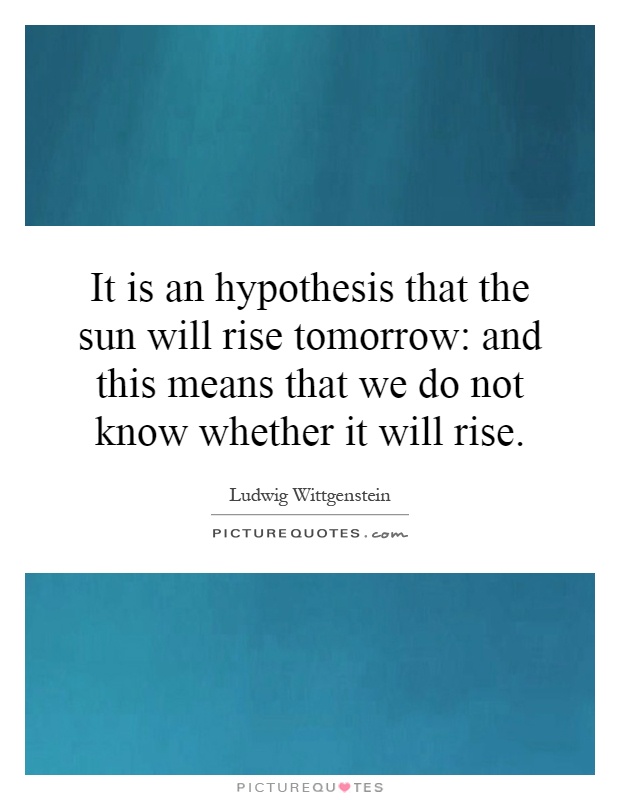It is an hypothesis that the sun will rise tomorrow: and this means that we do not know whether it will rise

It is an hypothesis that the sun will rise tomorrow: and this means that we do not know whether it will rise
Ludwig Wittgenstein, a renowned philosopher known for his work in logic, language, and the philosophy of mind, often explored the nature of knowledge and certainty in his writings. One of his most famous quotes, "It is an hypothesis that the sun will rise tomorrow: and this means that we do not know whether it will rise," encapsulates his views on the limits of human knowledge and the uncertainty inherent in our understanding of the world.Wittgenstein's statement challenges the assumption that we can have absolute certainty about the future based on past experiences. He suggests that even something as seemingly predictable as the rising of the sun is ultimately uncertain, as it is based on an hypothesis rather than a proven fact. This idea reflects Wittgenstein's broader skepticism towards the idea of absolute knowledge and his belief that our understanding of the world is always provisional and subject to revision.












 Friendship Quotes
Friendship Quotes Love Quotes
Love Quotes Life Quotes
Life Quotes Funny Quotes
Funny Quotes Motivational Quotes
Motivational Quotes Inspirational Quotes
Inspirational Quotes